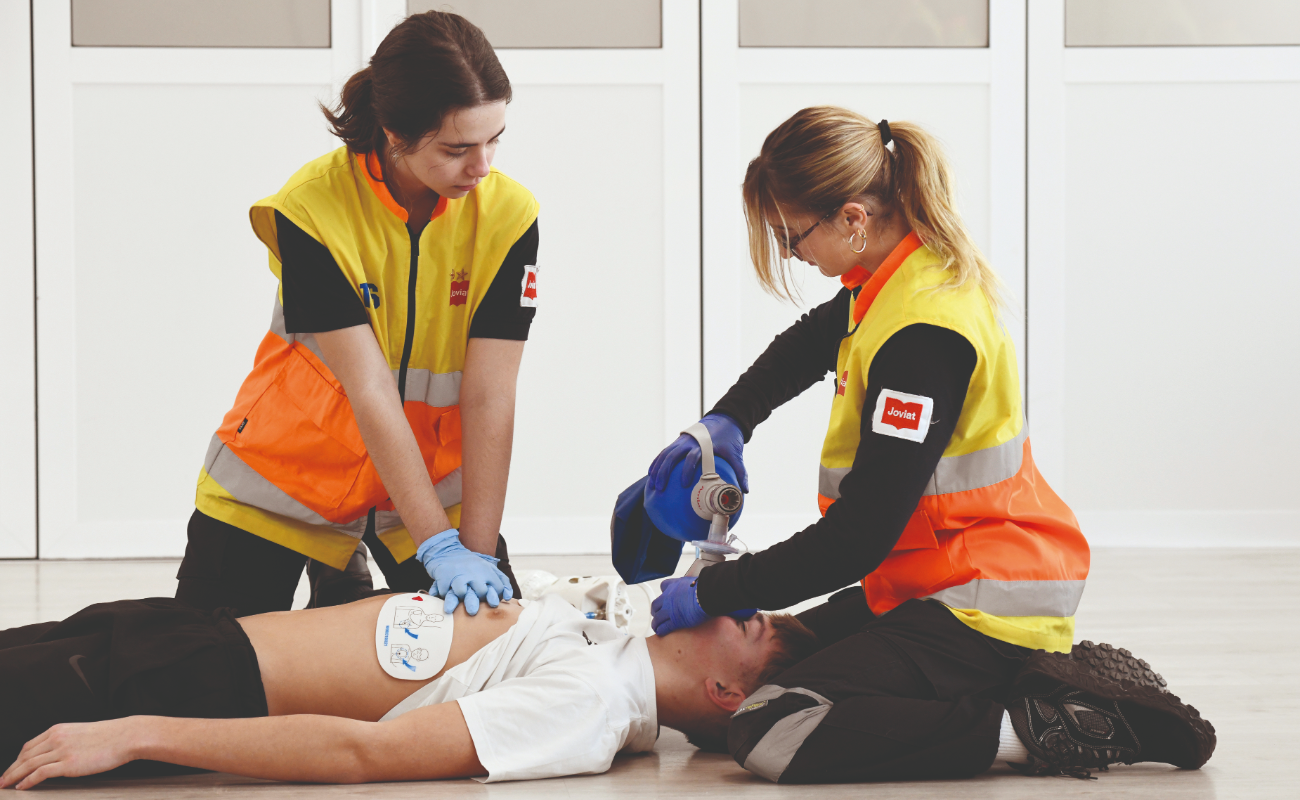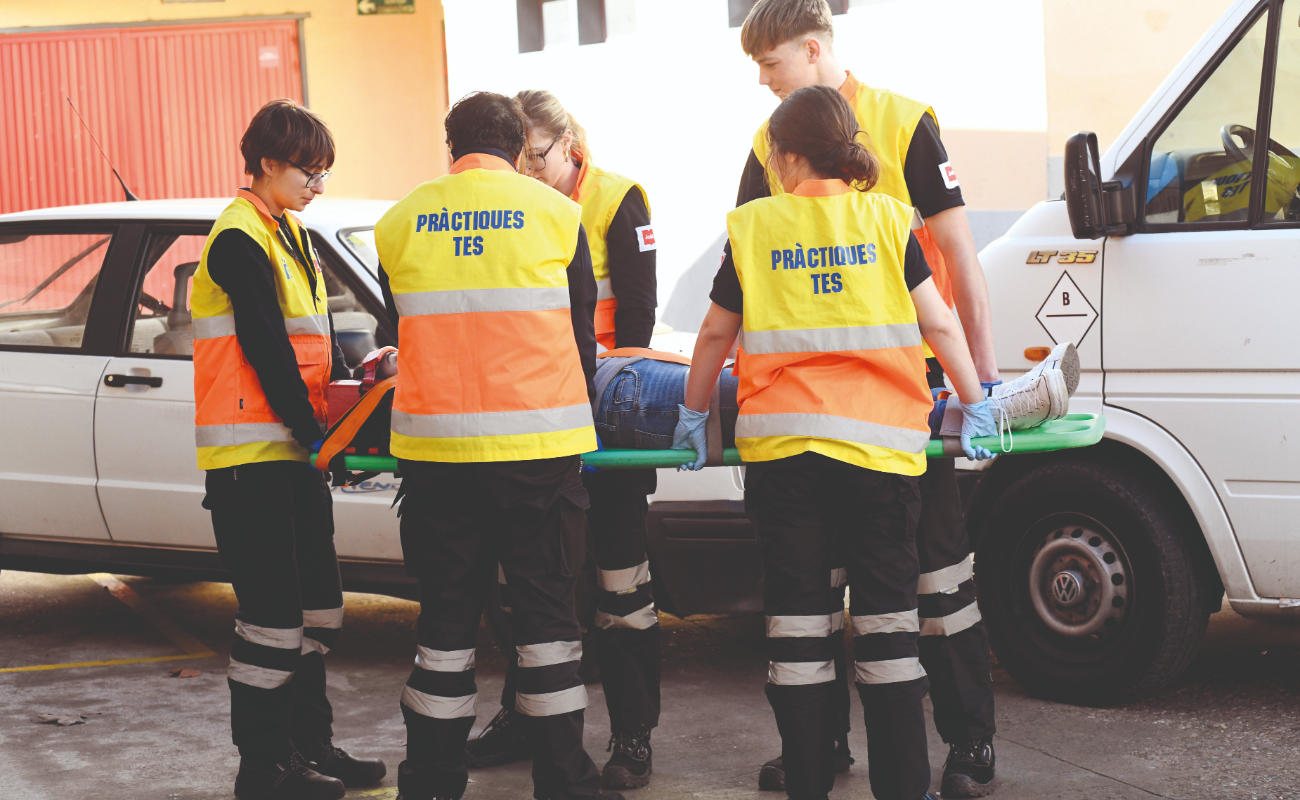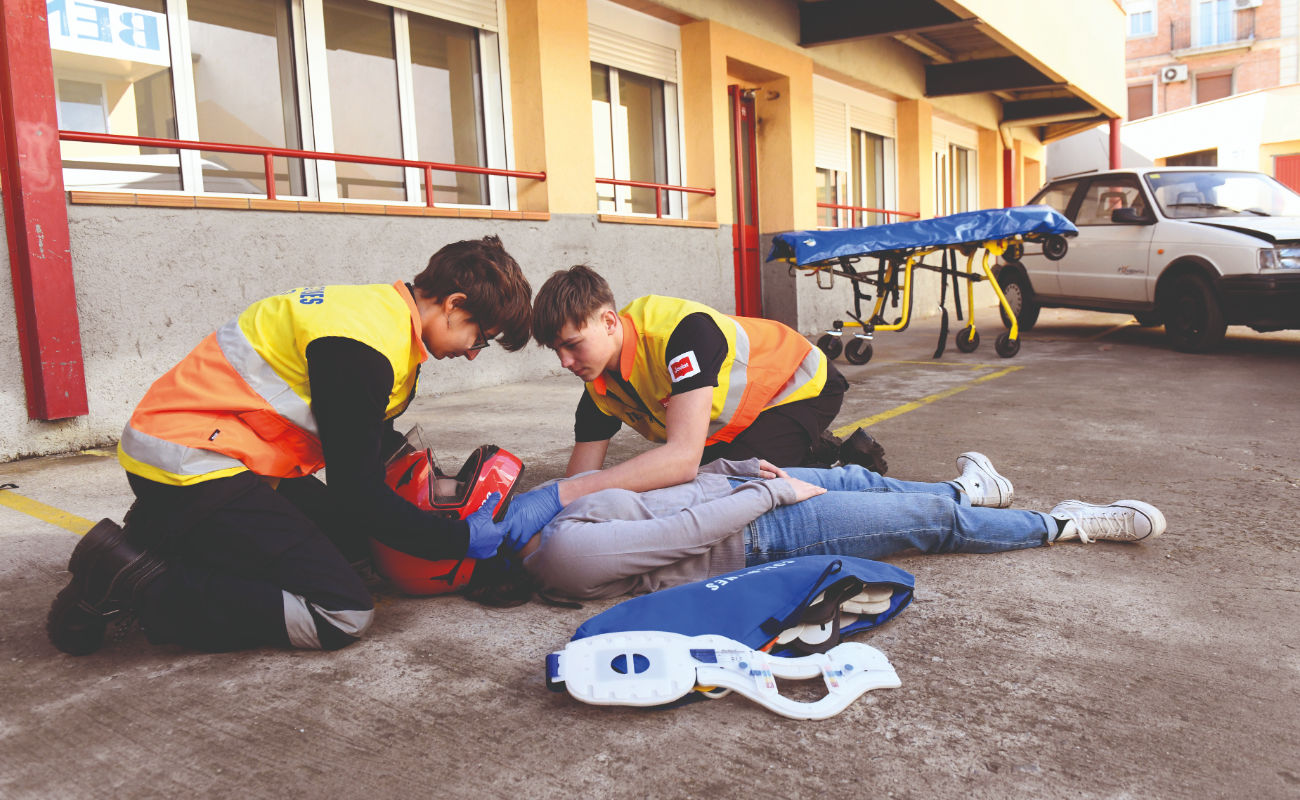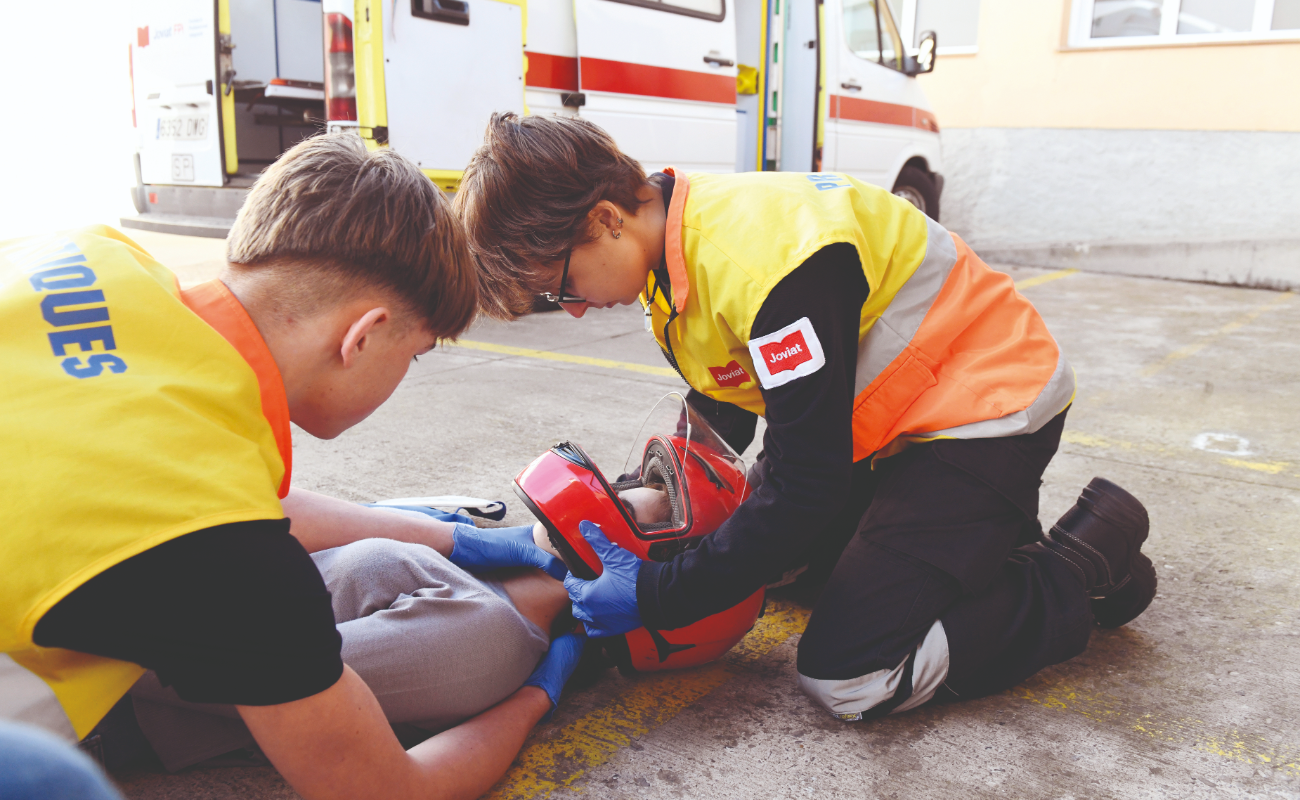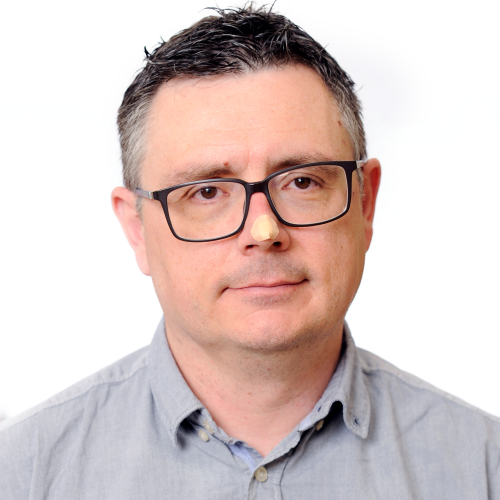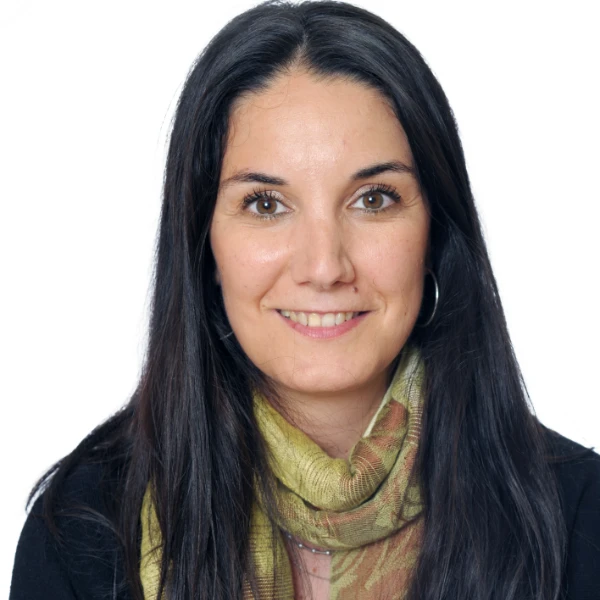| Name: | Health emergencies |
|---|---|
| Level: | Intermediate level professional training |
| Duration of the training cycle: | 2,000 hours – 2 academic years |
| Training in the educational center: | 1,485 hours |
| Training in workplaces: | 515 hours |
The Intermediate Vocational Training Cycle in Health Emergencies at JOVIAT School is designed to train qualified professionals in pre-hospital emergency care.
These studies train you to safely transport patients, provide basic and psychological healthcare in emergency situations, manage telecare operations, and actively participate in the coordination and execution of emergency plans and foreseeable risk devices.
We work with a team made up of healthcare teachers, Emergency Technicians, SEM nurses and specialists in the subjects taught. And we have specialized companies to carry out the stay in the company.
We adapt to the diverse needs and circumstances of students; the asynchronous online mode allows those who do not have the option of doing it in person at a fixed time to follow the course.
Schedules

Asynchronous Online Modality
The entire course is delivered online, except for some in-person sessions for practical activities and the regular exams at the end of each module
Curriculum
1st year
2nd year
Value projects
Basic life support + AED
During the course, face-to-face sessions are scheduled that allow you to obtain the Basic Life Support and Defibrillation Certificate from the Catalan Resuscitation Council and the European Resuscitation Council.
Synthesis project
It is a final project of a research cycle, related to the working world of the emergency medical technician. Students choose a topic and plan their development until the final presentation, with the option of doing it in front of a professional audience.
Adaptability to the student
Each module has a specific start and end date during the course, but students have the opportunity to organize their work in the way that suits them best.
This flexibility is especially valuable for students who are working or who, for any other reason, cannot commit to a fixed schedule like that of the on-site program.
Internships
Practical workshops with the center’s ambulance and a fully equipped ambulance simulator.

